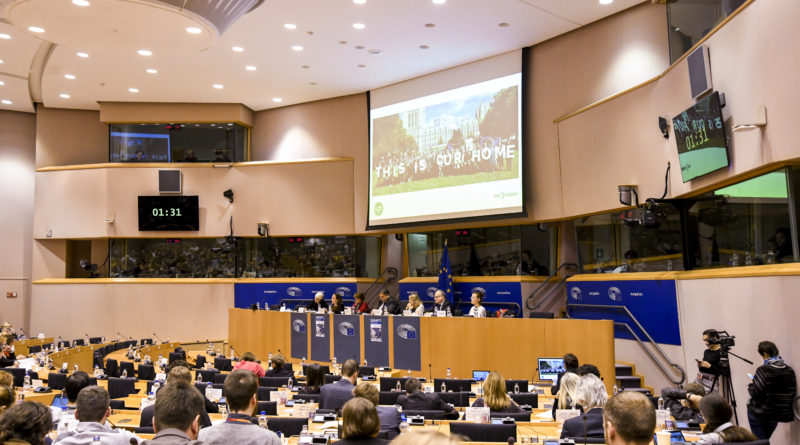EU parliament hearing: five things to watch on Brexit rights
Members of the European parliament heard concerns about the rights of EU nationals in the UK and British in the rest of Europe at a hearing on February 1st (video). The meeting gathered views about the Brexit agreement reached last December from organisations such as the3million, British in Europe and New Europeans, as well as from lawyers, academics and other experts.
MEPs said the drafting of the withdrawal agreement will have to translate in legal terms everything that was decided at the end of last year. The parliament will examine “every line, every sentence and every comma” and fight if anything departs from the deal, said Italian MEP Roberto Gualtieri, member of the Brexit steering group. Other concerns however emerged from the meeting. These are the main ones:
1. The potential creation of two different regimes for EU nationals in the UK, as the British Prime Minister said those arriving during the transition period should not be granted the same rights of those based in the UK before Brexit (the EU opposes this position). How to distinguish these two groups if the registration of those arrived before Brexit has not been completed?
2. The lack of guarantees that rights will withstand, whether through unilateral promises or through the “ringfencing” of the existing deal, if Brexit talks collapse.
3. The problems that may emerge in the enforcement of the agreement, when EU nationals in the UK will no longer be able to rely on the European Court of Justice. New laws not compatible with their acquired rights might be established then. An example: new UK data protection rules won’t allow people subject to an immigration procedure to know what information public authorities hold about them, and therefore to correct errors. An independent national authority will be established in the UK to monitor the enforcement of the agreement. This should be independent from the government, well resourced and be able to take action on behalf of EU citizens, it was stressed at the meeting.
4. The lack of an impact assessment of the deal on women, children and the most vulnerable groups who face the greater risks.
5. The fact that “sufficient progress” does not mean full progress, so there are still many issues to resolve to ensure that all existing rights are maintained. The most significant gaps concern free movement of British nationals in the EU27, the rights of future partners of EU nationals in the UK, the rights of British nationals who return to the UK with foreign spouses, and the recognition of professional qualifications.
It has been said that the Brexit agreement will protect “past life choices”, but civil rights groups at the meeting said rights should be protected instead. “Rights lead to life choices, not the other way round,” commented Anne-Laure Donskoy of the3million.
The hearing showed that the more these rights are analysed, the more problems emerge as ultimately no law can predict all circumstances of life.
The hearing on #Brexit citizens’ rights at @Europarl_EN is showing that the more you dig into it, the more problems emerge: impossible to predict all life circumstances, serious consequences possible in the future.
— Europe Street (@EuropeStreet) February 1, 2018
Claudia Delpero © all rights reserved.
Photo: European parliament hearing by Emilie Gomez © European Union 2018, EP.





